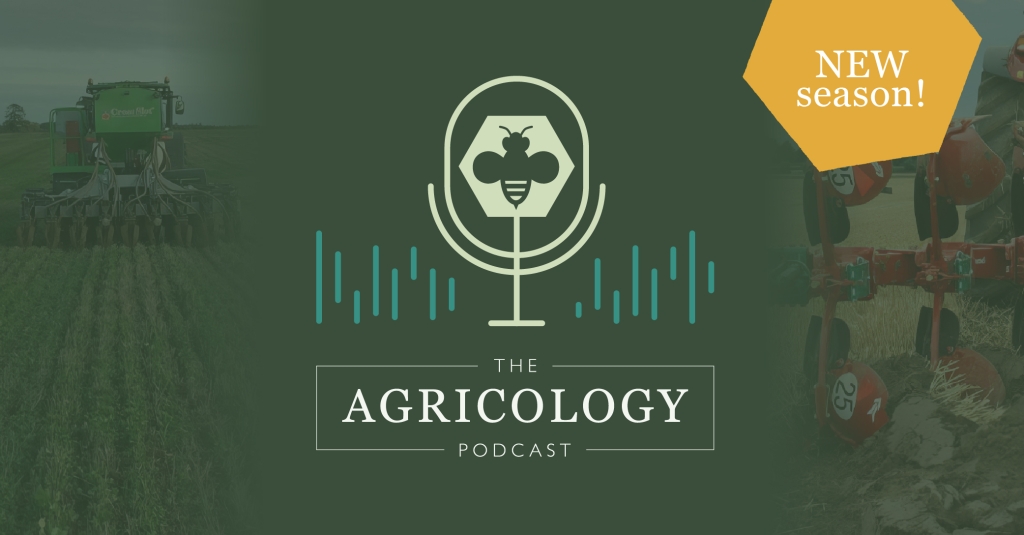Agricology has launched a new podcast season. ‘To Till or Not to Till’ brings together a range of voices to explore the complex and often polarising topic of tillage. From scientists and researchers to organic pioneers and regenerative farming advocates, the series ventures beyond the binary ‘plough or don’t plough’ standpoints to highlight a much-needed truth – context is everything.

The series highlights that tillage decisions depend not only on soil type, climate, and crop choice, but also on your philosophy, financial pressures, and farm history. No one practice is a silver bullet. Adaptability, observation, and learning from your land and from each other are key. The ‘holy grail’ isn’t no-till or full inversion, but a farming system rooted in resilience, and responding to local conditions, with an emphasis on when, why, and how to till.
Guests such as John Pawsey and Mark Measures emphasise that shallow, strategic tillage, balanced with rotations and leys, can support both productivity and soil health, while ORC’s Julia Cooper and Jonathan Storkey unpack the biological consequences of tillage and its role in larger ecological functions.
Episode One: In Conversation with Tom Martin (‘Farmer Tom’) The first episode of the new podcast introduces both Wallace Currie, guest podcaster from the Isle of Arran (search R2Kast), who will be chatting to guests throughout the series, and Cambridgeshire farmer Tom Martin. They discuss transitioning to no-till, the emotional and practical side of regenerative farming, redefining success through mistakes, and the value of community and biodiversity in agroecological systems.
Listen to the podcast here: https://agricology.libsyn.com/to-till-or-not-to-till-in-conversation-with-tom-martin
Episode Two: In Conversation with Mark Measures. This second episode explores the role of tillage in organic systems, the misunderstood relationship between tillage and soil carbon, the balance between weed control and nutrient cycling, and how tillage fits into wider farming systems. Mark reflects on 40 years in organic advice, much of it at the Organic Research Centre, with deep roots in research, education, and farmer engagement.
He argues that tillage, especially shallow and strategic, plays a crucial role in organic farming; not only for weed control and seedbed preparation, but also for stimulating nutrient release and building long-term stable carbon. He explores common misconceptions such as the oversimplified view that all tillage depletes soil organic matter, and explains that tillage can mineralise nutrients and stabilise humus, which is essential for carbon sequestration and water retention. He also challenges the belief that zero-till is the pinnacle of organic, pointing to climate and system-specific limitations.
“… less than 10% of arable farming in the UK is zero tillage, despite all the noise…That is a reflection of the fact that there are some problems with no till, including soil structure problems and weed problems…”
Mark advocates for strong rotations, fertility-building leys, and shallow, context-sensitive ploughing. He emphasises that tillage must be considered as part of a broader ecological, economic, and agronomic strategy – balanced, site-specific, and always evolving.
Listen to the podcast here: https://agricology.libsyn.com/to-till-or-not-to-till-in-conversation-with-mark-measures
